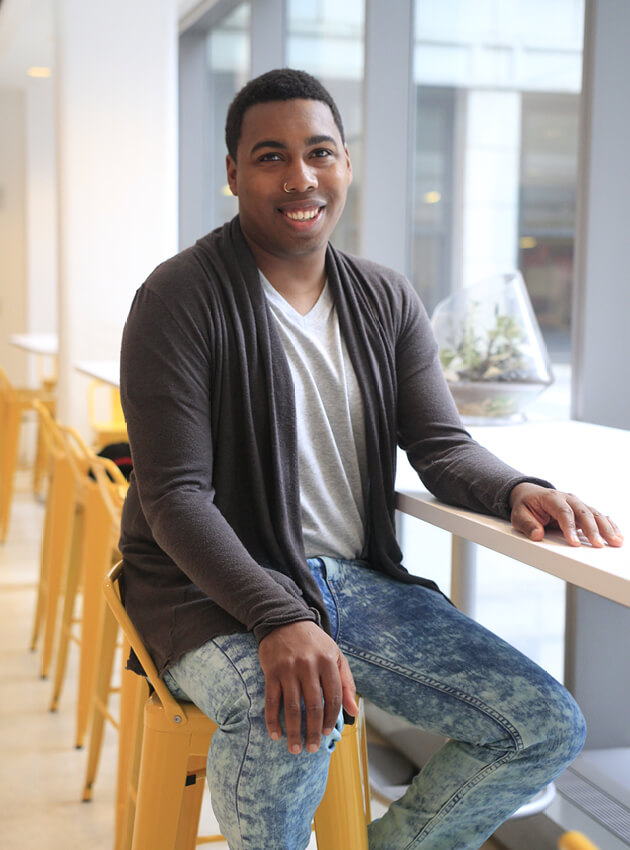Saeed Jones: Prelude To Bruise


Photo by Austin McAllister
“I THINK OF POETRY as the haute couture of writing,” says Saeed Jones. It’s a fitting description of his first full-length collection of poems, Prelude to Bruise, a book of powerful, exquisite verse that is anything but off-the-rack. Jones, who works as the LGBT editor at Buzzfeed, marries investigations into the intersection of race and sexuality with well-honed observations about the Southern landscape of his youth.
In Prelude to Bruise, Jones traces the stumbling coming- of- age of a character named Boy as he attempts to navigate the treacherous waters of masculinity and youth. In the title poem, Jones writes about a sexual encounter Boy has in Birmingham: “Boy, be/a bootblack./Your back, blue-black/Your body, burning.”
“I was obsessed with the word ‘boy’, in all its facets,” Jones says. “There are the racial connotations, but also the American-nessof the word, the way it’s used in an S&M context. I just kept turning the word over and finding more angles, more things to write about.”
Some of Boy’s misadventures are loosely based on Jones’ own experiences, though they are far from autobiographical. “There are no friends in the book,” Jones says. “There are no poems about going out with buddies or having brunch. It’s about him, his family, lovers, and strangers, and the price of carrying around everything in your head without communicating it. I think isolation is pretty dangerous. Not being able to open up is a kind of death sentence.”
Part of Jones’ skill is the ability to take stereotypes—about growing up in the South, about growing up black in the South, about being gay—and nimbly overturn them to shake out their contents. “My version of the South was the suburbs, mostly,” Jones says. “I wasn’t living in a cabin in the middle of the woods. I’ve never touched a gun before in my life. I sometimes hear from acquaintances things like, ‘I wish I was black, I would be good at poetry.’ Or, ‘You’re lucky you’re gay, because that’s your whole thing.’ But it’s always about privilege. What that’s really saying is ‘I wish my life was as awful as yours so I could write about it.’ That’s not praise, it’s a confession.”
Jones also takes exception to the old “write what you know” adage, at least as a way for writers to excuse bad behavior for the sake of gleaning material for a story. “It’s a way of getting yourself killed,” he says. “The ideas of ‘I’ll get a poem or an essay’ out of this is such a youthful thing. We say that as writers because it gives gravitas to us just being a mess.”
By the end of the book, Boy is teetering on the edge of adulthood, throwing himself headlong into experiences, but unable to parse the vast amount of information he must absorb to be a part of the world. “All the blueprints that he has are terrible,” Jones says. “There are no good instructions for how to live and how to love and how to make love. So we all have to use other human beings to figure things out.”
You might also like 




















